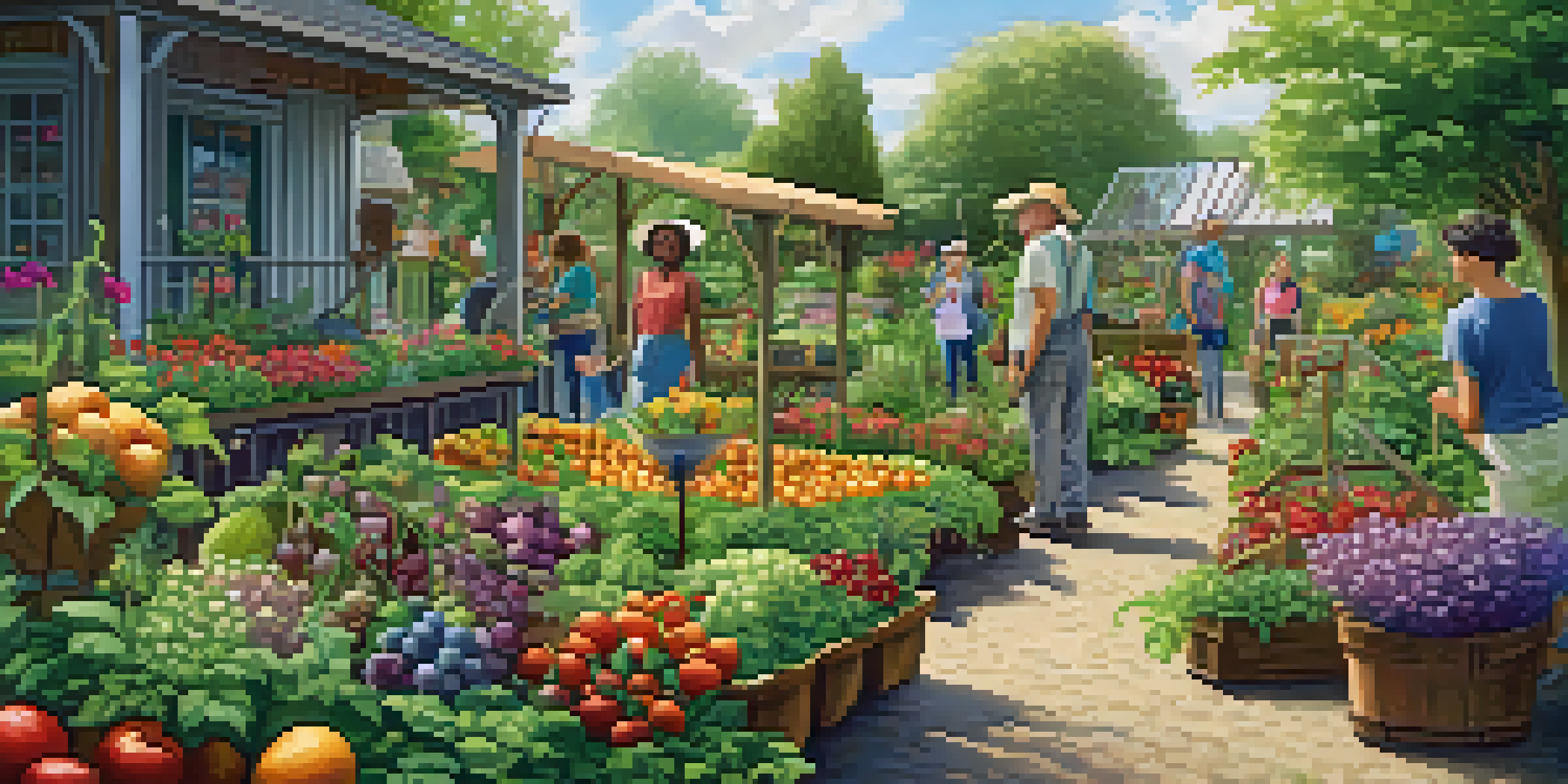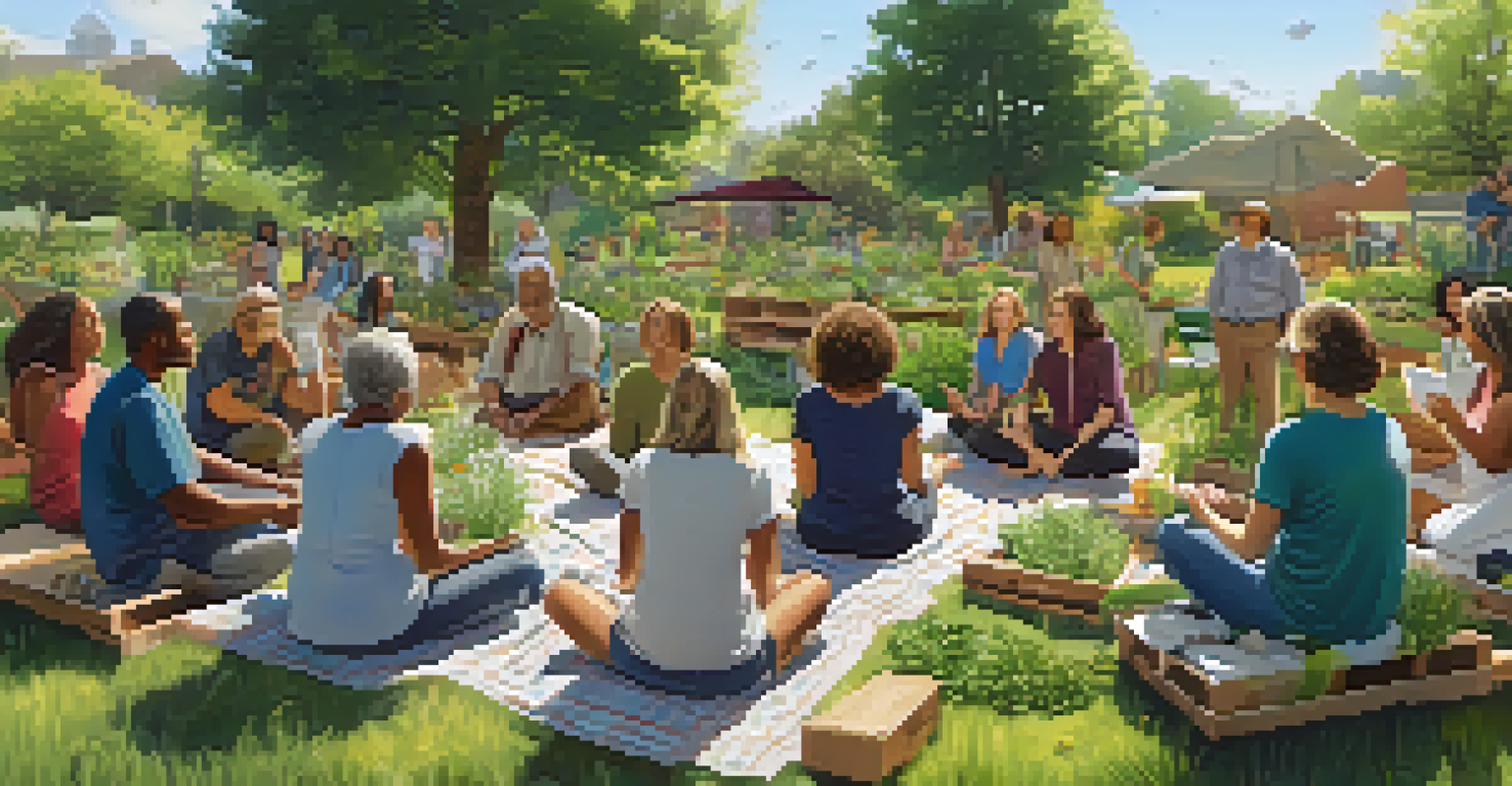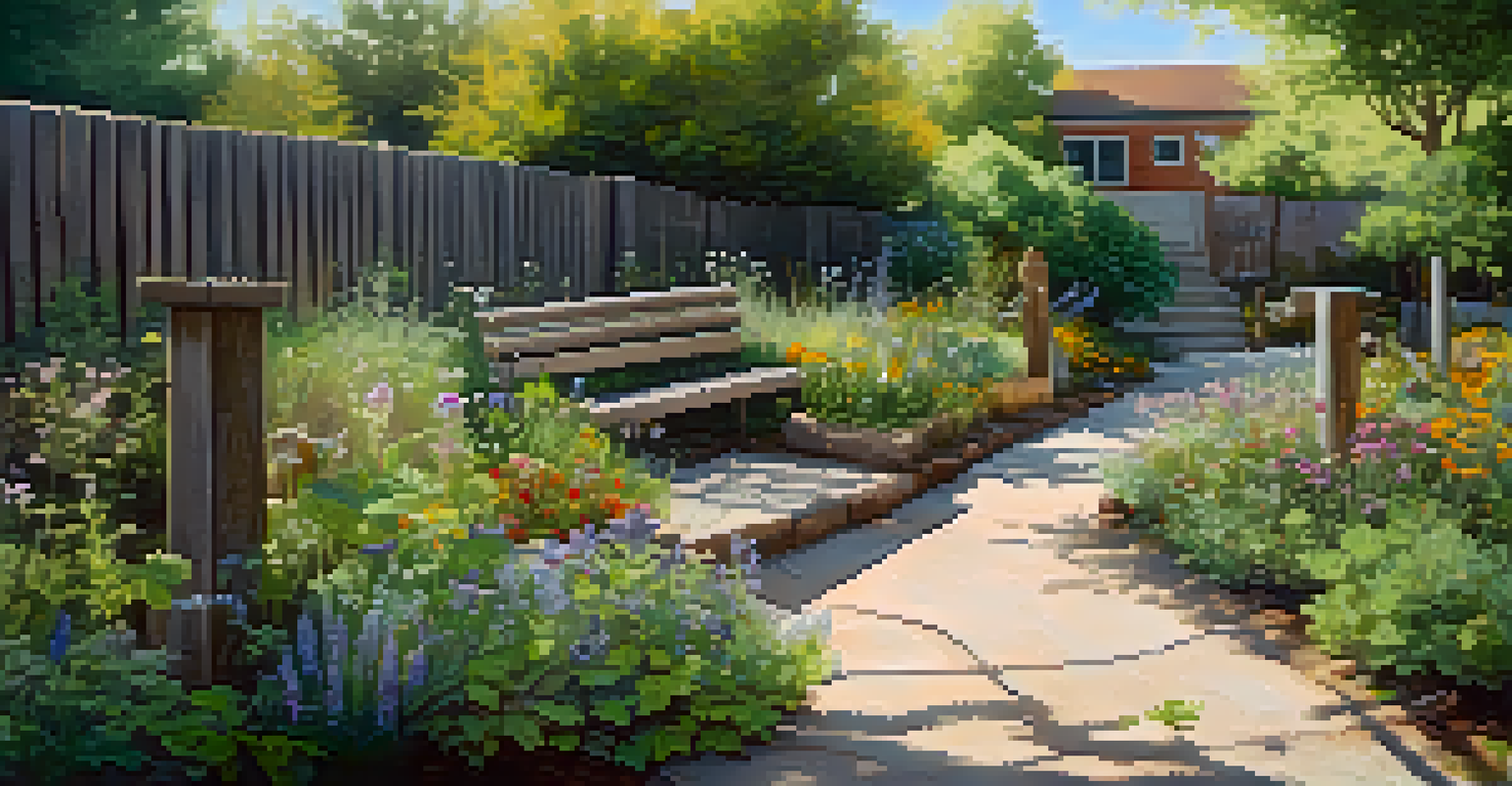Community Gardens and Naturopathy: A Healing Partnership

Understanding Community Gardens and Their Benefits
Community gardens are shared spaces where individuals grow fruits, vegetables, and flowers together. They not only provide fresh produce but also foster a sense of community and belonging. These gardens serve as green sanctuaries in urban environments, promoting biodiversity and environmental sustainability.
The greatest gift of the garden is the restoration of the five senses.
Participating in a community garden can be a therapeutic experience. The act of planting, nurturing, and harvesting plants fosters mindfulness and helps reduce stress. Additionally, these gardens often become social hubs, where people connect, share knowledge, and support one another, enhancing mental well-being.
Moreover, community gardens can improve food security by providing access to fresh, healthy produce. This is especially important in food deserts, where access to grocery stores is limited. By growing their own food, community members not only gain nutritional benefits but also empower themselves and their families.
What is Naturopathy and Its Core Principles?
Naturopathy is a holistic approach to health that emphasizes the body's inherent ability to heal itself. Practitioners use natural remedies, such as herbs, nutrition, and lifestyle changes, to support this healing process. The core principles of naturopathy include treating the whole person, identifying and addressing the root cause of illness, and promoting wellness through prevention.

One key aspect of naturopathy is the emphasis on natural, whole foods. This aligns perfectly with the philosophy of community gardening, where individuals grow their own organic produce. By consuming locally grown food, people can improve their health while also supporting their community.
Community Gardens Foster Connection
Community gardens create shared spaces for growing food, enhancing social ties and promoting a sense of belonging among participants.
Additionally, naturopathy encourages a connection with nature, which is often achieved through practices like gardening. This connection not only nurtures the body through healthy food but also soothes the mind, creating a comprehensive approach to well-being.
The Synergy Between Community Gardens and Naturopathy
The partnership between community gardens and naturopathy is a natural fit. Both focus on sustainable practices, health, and the importance of community connections. By integrating the principles of naturopathy into community gardening, individuals can enhance their physical and mental health while cultivating a sense of belonging.
Gardening adds years to your life and life to your years.
For example, community gardening workshops can incorporate naturopathic teachings on nutrition and herbal medicine. Participants can learn how to use their garden's bounty to create healthy meals or remedies. This not only educates individuals but also empowers them to take charge of their health.
Moreover, community gardens can serve as a platform for naturopaths to offer services, such as wellness workshops. This creates a collaborative environment where community members can learn about holistic health practices while actively engaging in gardening activities.
Healing Benefits of Gardening in Naturopathy
Gardening itself is a therapeutic activity, often recommended in naturopathy for its numerous health benefits. The physical act of digging, planting, and tending to plants can enhance physical fitness and coordination. It encourages movement, which is vital for maintaining overall health.
Moreover, spending time in nature has profound effects on mental health. Research shows that being outdoors reduces anxiety, depression, and stress levels. The sensory experience of gardening—feeling the soil, smelling the flowers—can ground individuals, providing a calming and restorative effect.
Naturopathy Enhances Well-Being
Naturopathy focuses on holistic health by using natural remedies and encouraging lifestyle changes that support the body's ability to heal.
Additionally, the act of nurturing plants fosters a sense of responsibility and purpose. This emotional connection can boost self-esteem and cultivate a positive outlook on life, aligning perfectly with the goals of naturopathy to promote holistic well-being.
Case Studies: Successful Community Garden Initiatives
Various community gardens across the globe have integrated naturopathy principles with remarkable success. For instance, a community garden in New York City not only provides fresh produce but also offers workshops on herbal medicine and nutrition. This initiative has empowered many participants to adopt healthier eating habits while fostering a strong community spirit.
Another example can be found in a community garden in Toronto, where local naturopaths collaborate with gardeners to create health-focused events. These gatherings include cooking demonstrations, wellness talks, and guided meditation sessions amidst the greenery, creating a holistic healing environment.
These case studies illustrate that community gardens can be more than just a source of food; they can become vibrant centers for health education and community support, embodying the principles of naturopathy in action.
How to Start a Community Garden Focused on Naturopathy
Starting a community garden with a focus on naturopathy can be an enriching endeavor. Begin by gathering interested community members and discussing the vision and goals of the garden. This collaborative approach not only ensures diverse input but also strengthens community bonds from the outset.
Next, secure a suitable location with adequate sunlight and access to water. Once a site is chosen, consider incorporating elements of naturopathy, such as planting medicinal herbs alongside vegetables. This diversity can educate community members about the benefits of various plants and their uses in natural healing.
Integrating Gardening and Health
The synergy between community gardening and naturopathy promotes sustainable practices and improves both physical and mental health.
Finally, organize workshops and events that highlight the principles of naturopathy. This could include classes on nutrition, herbal medicine, and gardening techniques. By fostering a culture of learning and sharing, the community garden can thrive as a space for growth—both for plants and for personal well-being.
Conclusion: Cultivating Health Through Community and Nature
The partnership between community gardens and naturopathy offers a powerful approach to health and well-being. By growing our own food and connecting with nature, we not only nourish our bodies but also foster a sense of community and support. This holistic approach aligns perfectly with the principles of naturopathy, which emphasizes healing through natural means.
As more people embrace the benefits of community gardening, the potential for collective healing grows. Communities can become hubs of health, education, and support, creating a ripple effect that extends beyond the garden itself. By cultivating our own health, we can also cultivate a healthier planet.

In a world where connection and wellness are more important than ever, the integration of community gardens and naturopathy shines as a beacon of hope. Together, let’s nurture our communities and our health, one garden at a time.